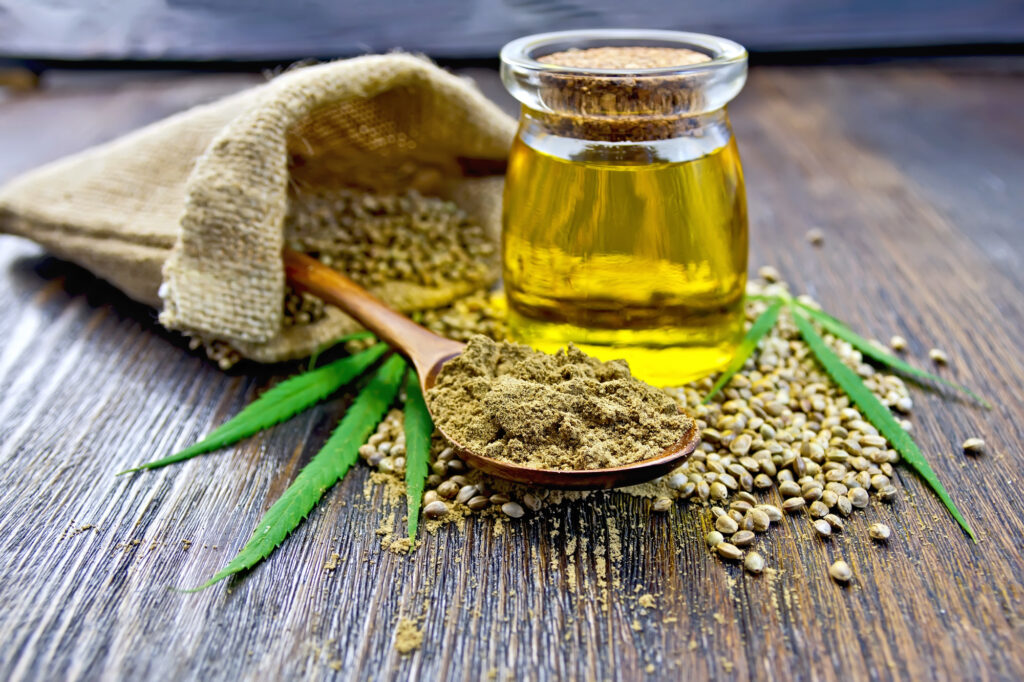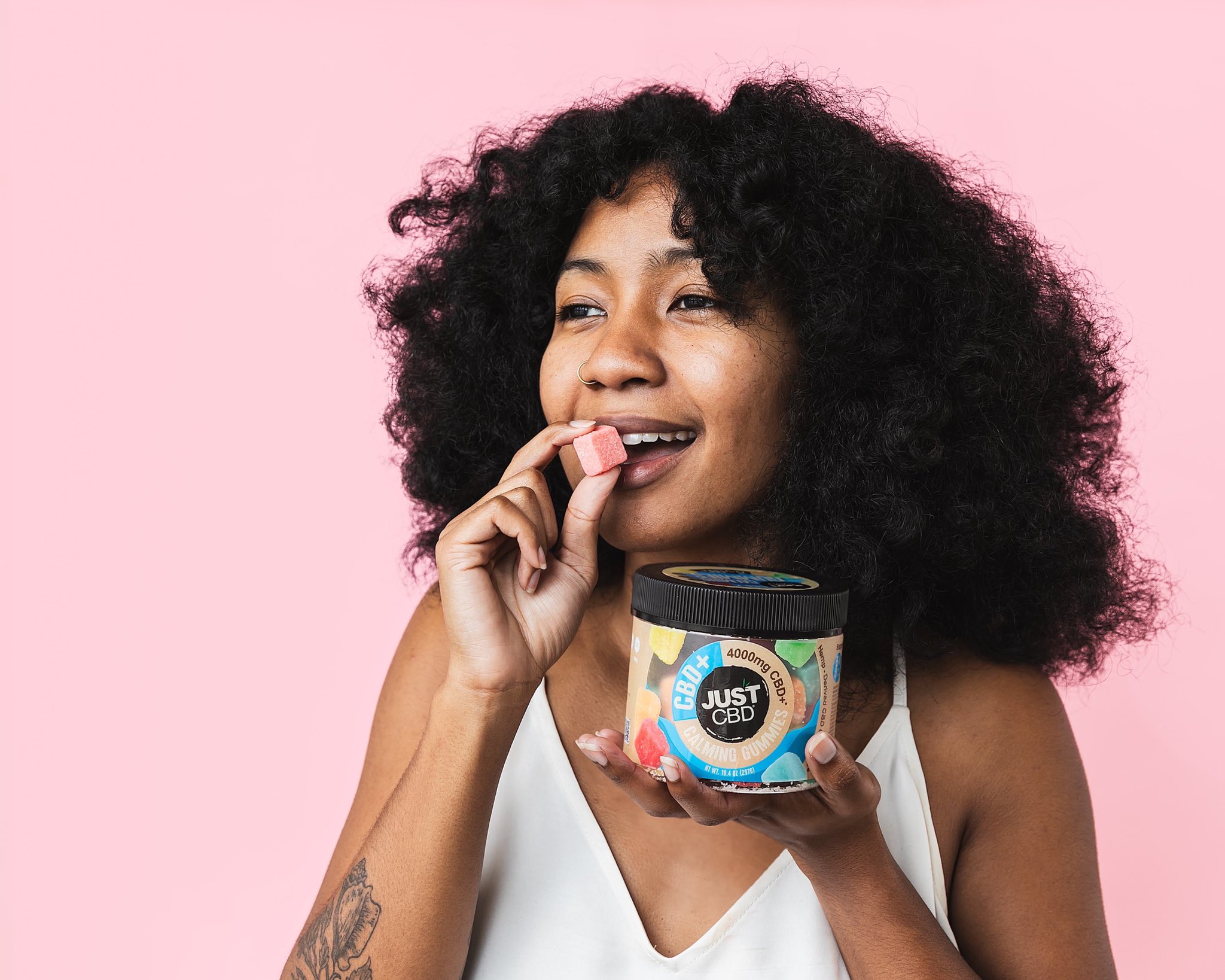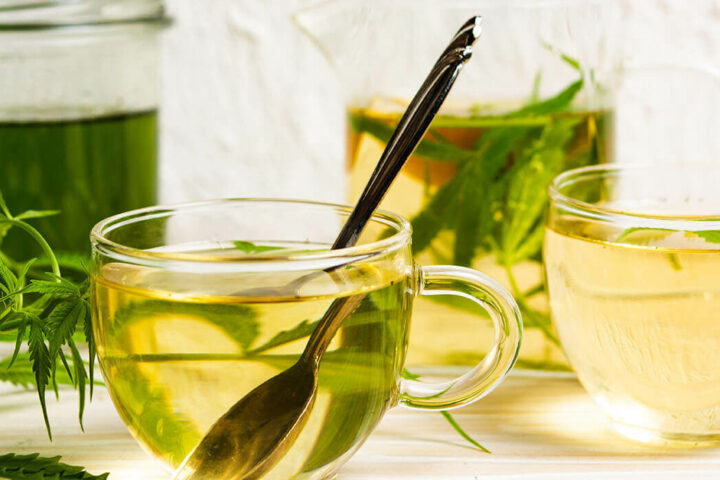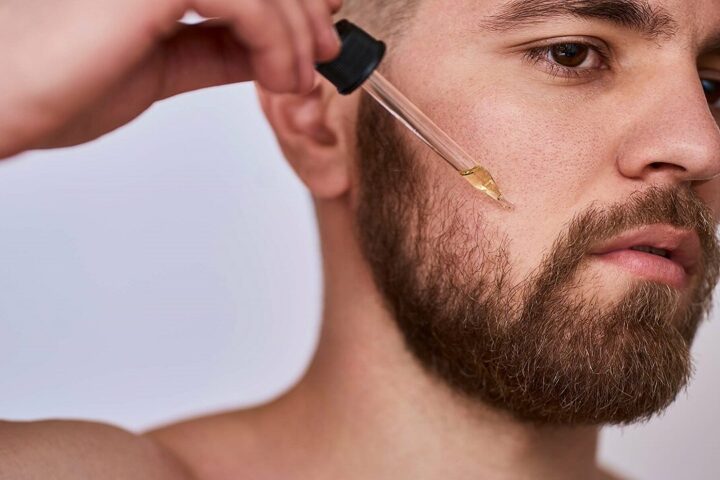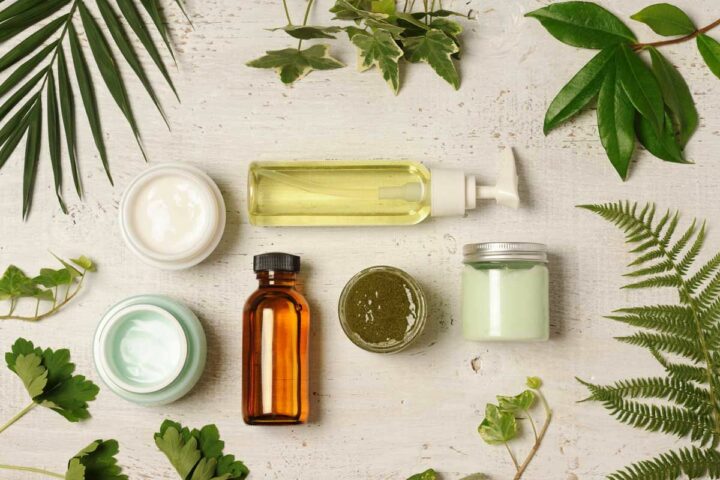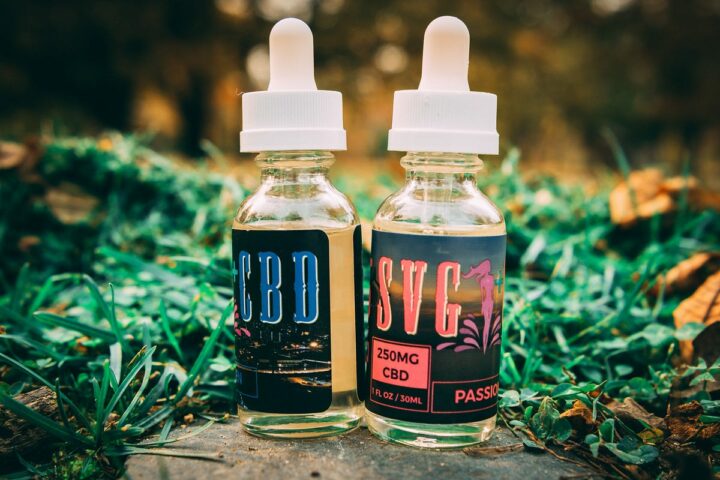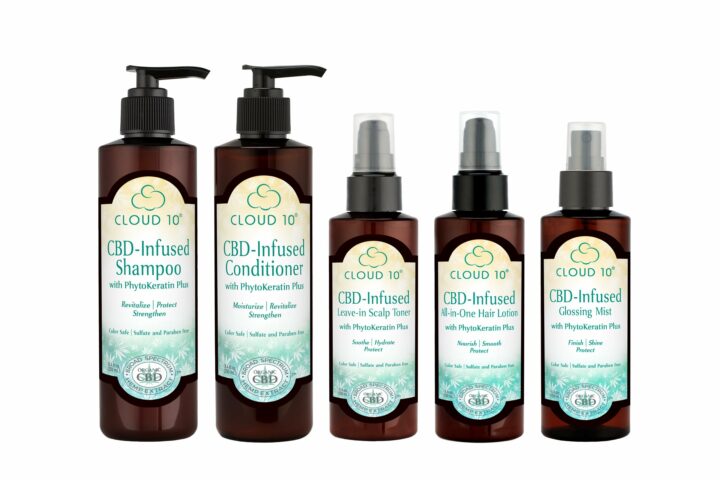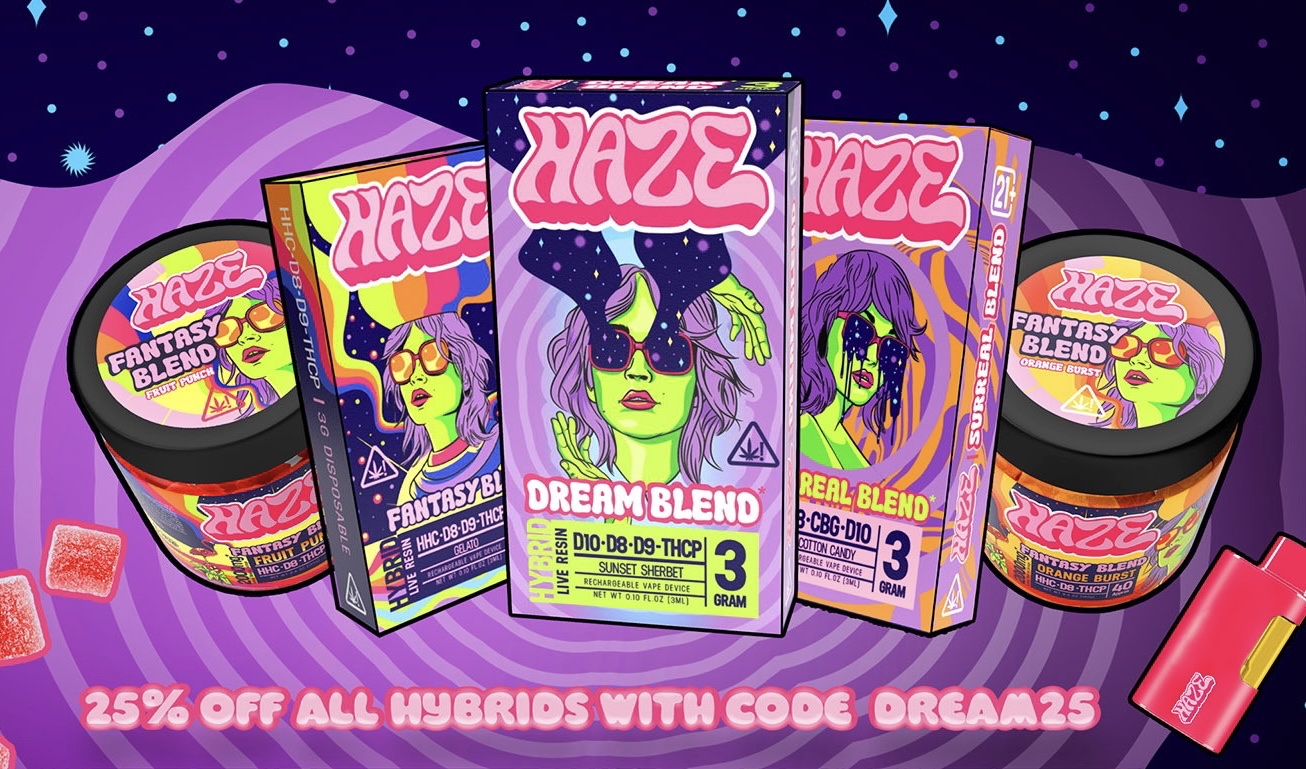Hemp Oil
What is Hemp Oil
Hemp oil is a type of oil that is extracted from the seeds of the hemp plant. It is also known as hempseed oil or cannabis sativa seed oil. Unlike CBD oil, which is extracted from the flowers, leaves, and stalks of the hemp plant, hemp oil is extracted from the seeds.
Composition of Hemp Oil
Hemp oil contains a variety of beneficial compounds, including:
- Essential fatty acids: Hemp oil is rich in omega-3 and omega-6 fatty acids, which are essential for overall health and well-being.
- Antioxidants: Hemp oil contains antioxidants such as vitamin E, which can help protect the body against damage from free radicals.
- Minerals: Hemp oil is a good source of minerals such as magnesium, potassium, and calcium.
- Vitamins: Hemp oil contains vitamins such as vitamin B6 and vitamin D.
Uses of Hemp Oil
Hemp oil has a variety of uses and is commonly used in:
- Cooking: Hemp oil has a nutty flavor and can be used as a substitute for olive oil or other cooking oils. It is not recommended for high-heat cooking, as it has a low smoke point.
- Skincare: Hemp oil is used in many skincare products due to its moisturizing and antioxidant properties. It can help soothe dry and irritated skin and may also help reduce the appearance of fine lines and wrinkles.
- Haircare: Hemp oil is used in many haircare products due to its moisturizing properties. It can help nourish and strengthen hair and may also help prevent breakage and split ends.
- Supplements: Hemp oil is available in supplement form and can be taken orally. It is often used as a source of essential fatty acids, which can help support overall health and well-being.
Conclusion
Hemp oil is a type of oil that is extracted from the seeds of the hemp plant. It is rich in essential fatty acids, antioxidants, minerals, and vitamins. Hemp oil has a variety of uses, including cooking, skincare, haircare, and as a dietary supplement. If you’re considering using hemp oil, be sure to choose a high-quality, organic product that is free from contaminants. As with any supplement, it’s also a good idea to consult with a healthcare professional before use.
How to Use Hemp Oil
Hemp oil can be used in a variety of ways, including topically and orally. Here is a comprehensive guide on how to use hemp oil:
Topical Use of Hemp Oil
When using hemp oil topically, follow these steps:
- Cleanse your skin: Wash your face or the area where you plan to apply the oil.
- Apply the oil: Apply a small amount of hemp oil to your fingertips and gently massage it into your skin. You can also use a cotton ball or pad to apply the oil.
- Allow it to absorb: Let the oil absorb into your skin for a few minutes before applying any other products.
- Repeat as needed: You can apply hemp oil topically once or twice a day, or as needed.
Oral Use of Hemp Oil
When using hemp oil orally, follow these steps:
- Determine your dosage: Hemp oil can be taken in different dosages depending on your needs. Start with a low dosage and gradually increase it over time.
- Place the oil under your tongue: Using the dropper that came with the bottle, place the desired amount of hemp oil under your tongue.
- Hold for 60-90 seconds: Allow the oil to absorb under your tongue for 60-90 seconds before swallowing.
- Repeat as needed: You can take hemp oil orally once or twice a day, or as needed.
Cooking with Hemp Oil
When cooking with hemp oil, follow these steps:
- Choose a high-quality oil: Look for organic, cold-pressed hemp oil that has not been refined.
- Use low heat: Hemp oil has a low smoke point, so it should not be used for high-heat cooking. Instead, use it for low-heat cooking or as a finishing oil.
- Add it to salads and dressings: Hemp oil has a nutty flavor and can be used as a substitute for olive oil or other cooking oils in salad dressings and sauces.
- Use it as a supplement: You can also add hemp oil to smoothies or other foods as a dietary supplement.
Conclusion
Hemp oil can be used topically, orally, or in cooking. When using hemp oil topically, clean your skin before applying and allow it to absorb before applying any other products. When using hemp oil orally, determine your dosage, place it under your tongue, and hold for 60-90 seconds before swallowing. When cooking with hemp oil, choose a high-quality oil and use it for low-heat cooking or as a finishing oil. As with any supplement, it’s a good idea to consult with a healthcare professional before use.
What are the Benefits of Hemp Oil
Hemp oil, also known as hempseed oil, is derived from the seeds of the hemp plant. Here are some of the potential benefits of hemp oil:
1. Rich in Nutrients
Hemp oil is a good source of essential fatty acids and vitamins, including omega-3 and omega-6 fatty acids, vitamin E, and vitamin B6. These nutrients can help support overall health and wellbeing.
2. May Help Manage Chronic Pain
Hemp oil may have analgesic properties that could help alleviate chronic pain. It interacts with the endocannabinoid system in the body, which regulates pain and inflammation.
3. May Promote Heart Health
The essential fatty acids in hemp oil may help reduce cholesterol levels and improve heart health. Additionally, the antioxidants in hemp oil may help protect against heart disease.
4. May Improve Skin Health
The fatty acids in hemp oil can help moisturize and nourish the skin, while its anti-inflammatory properties may help reduce redness and irritation. Hemp oil is also rich in antioxidants, which can help protect the skin from damage caused by free radicals.
5. May Reduce Anxiety and Depression
Hemp oil may have calming effects that could help reduce anxiety and depression. It interacts with the endocannabinoid system in the body, which regulates mood and stress response.
6. May Benefit Brain Health
The omega-3 fatty acids in hemp oil may help support brain health and cognitive function. Additionally, hemp oil may have neuroprotective properties that could help protect against neurodegenerative diseases.
7. May Alleviate Menopause Symptoms
Hemp oil may help alleviate symptoms of menopause, such as hot flashes and mood swings, due to its high content of gamma-linolenic acid (GLA).
Conclusion
Hemp oil is a nutrient-rich oil that may offer a range of potential health benefits, including managing chronic pain, promoting heart health, improving skin health, reducing anxiety and depression, benefiting brain health, and alleviating menopause symptoms. However, more research is needed to fully understand the effects of hemp oil on human health. As with any supplement, it’s important to consult with a healthcare professional before use.
What to Look for when shopping for Hemp Oil
When shopping for hemp oil, there are several factors to consider to ensure that you are getting a high-quality product. Here are some things to look for:
1. Source of the Hemp
Make sure the hemp oil you purchase is sourced from high-quality, organic hemp plants that are grown in clean soil. Hemp is a bioaccumulator, which means it can absorb toxins from the soil, so it’s important to choose a product that is grown in a clean and sustainable environment.
2. Extraction Method
There are several extraction methods used to extract hemp oil from the seeds, including cold-pressed, CO2 extraction, and solvent extraction. Look for a product that uses a high-quality extraction method that preserves the integrity of the nutrients in the oil.
3. Purity and Potency
Make sure the hemp oil you purchase has been tested by a third-party lab to ensure that it is pure and potent. Look for a product that has a certificate of analysis (COA) available, which will show you the cannabinoid profile, potency, and purity of the oil.
4. Type of Hemp Oil
There are different types of hemp oil available, including full-spectrum, broad-spectrum, and CBD isolate. Full-spectrum hemp oil contains all of the cannabinoids and other beneficial compounds found in the hemp plant, while broad-spectrum hemp oil contains everything except for THC. CBD isolate is pure CBD and does not contain any other cannabinoids or compounds. Choose a product that fits your specific needs and preferences.
5. Dosage and Serving Size
Make sure to check the dosage and serving size information on the product label to ensure that you are taking the right amount of hemp oil for your needs. It’s important to start with a low dosage and gradually increase until you achieve the desired effects.
Conclusion
When shopping for hemp oil, it’s important to consider the source of the hemp, the extraction method, the purity and potency of the product, the type of hemp oil, and the dosage and serving size information. By choosing a high-quality hemp oil product, you can reap the potential health benefits of this nutrient-rich oil. As always, it’s important to consult with a healthcare professional before use.
FAQs-Hemp Oil
What is hemp hemp oil used for?
commonly used as a dietary supplement due to its nutritional profile, rich in essential fatty acids, vitamins, and minerals. Hemp seed oil is also used in skincare products for its moisturizing and nourishing properties, helping to promote healthy skin. It can be added to recipes and used in cooking as a source of healthy fats. However, it’s important to note that hemp seed oil does not contain significant levels of CBD or other cannabinoids found in the hemp plant. If you are looking for the potential therapeutic benefits of CBD, you may need to consider CBD oil or other CBD-infused products specifically.
Is hemp oil the same as CBD oil?
No, hemp oil and CBD oil are not the same. Hemp oil, also known as hemp seed oil, is derived from the seeds of the hemp plant and contains only trace amounts of CBD (cannabidiol) or other cannabinoids. It is primarily used for its nutritional benefits and as a culinary ingredient. On the other hand, CBD oil is extracted from the leaves, flowers, and stalks of the hemp plant and contains higher concentrations of CBD. CBD oil is sought after for its potential therapeutic properties and is commonly used for managing various health concerns. It’s important to read product labels carefully and understand the differences between hemp oil and CBD oil to ensure you are getting the desired product.
Which is stronger CBD or hemp?
When comparing CBD and hemp, it’s important to understand their differences. Hemp refers to the cannabis plant species, specifically Cannabis sativa, and can contain various compounds, including CBD. However, CBD is a specific cannabinoid found in hemp and other cannabis plants. In terms of strength, it depends on the concentration of CBD in each product. CBD oil, which is specifically extracted for its high CBD content, can have higher concentrations of CBD compared to hemp oil, which is derived from hemp seeds and contains minimal CBD. Therefore, CBD oil is generally considered stronger in terms of CBD content and potential therapeutic effects.
Is hemp oil or CBD oil better for anxiety?
Both hemp oil and CBD oil have the potential to help with anxiety, but the effectiveness may vary depending on the individual. Hemp oil, derived from hemp seeds, does not contain significant levels of CBD, so its impact on anxiety may be more indirect. On the other hand, CBD oil specifically contains higher concentrations of CBD, which has been studied for its potential anti-anxiety properties. CBD interacts with the body’s endocannabinoid system, which plays a role in regulating mood and stress responses. Therefore, CBD oil may be more directly beneficial for managing anxiety symptoms compared to hemp oil. It’s important to consult with a healthcare professional to determine the best approach for your specific needs.
Does hemp oil help with pain?
Hemp oil has the potential to help with pain due to its anti-inflammatory properties. It contains omega-3 and omega-6 fatty acids, which have been shown to have anti-inflammatory effects in the body. Inflammation is often associated with pain, so reducing inflammation may provide some relief. However, it’s important to note that the effectiveness of hemp oil for pain management may vary from person to person, and it may not be as potent as CBD oil, which contains higher levels of cannabidiol (CBD) known for its potential analgesic properties. If you are considering using hemp oil for pain, it’s recommended to consult with a healthcare professional for personalized advice and to explore other potential treatment options.
Does hemp oil or CBD help you sleep?
Both hemp oil and CBD have the potential to help with sleep, although CBD is typically more commonly associated with sleep support. CBD interacts with the body’s endocannabinoid system, which plays a role in regulating sleep-wake cycles. It may help promote relaxation, reduce anxiety, and improve sleep quality. Hemp oil, on the other hand, contains various beneficial compounds, including omega-3 fatty acids, which may indirectly contribute to better sleep by supporting overall wellness and reducing inflammation. However, it’s important to note that individual responses to hemp oil and CBD can vary, and it’s recommended to consult with a healthcare professional for personalized advice on using these substances for sleep support.
Does hemp oil really relax you?
Hemp oil has the potential to promote relaxation due to its natural compounds, such as cannabinoids and terpenes. These compounds interact with receptors in the body’s endocannabinoid system, which plays a role in regulating various physiological processes, including stress response and mood. Some individuals report feeling a sense of calm and relaxation after using hemp oil. However, it’s important to note that the effects can vary from person to person, and individual responses may depend on factors such as dosage, concentration, and overall health. It’s recommended to start with a low dose and gradually increase if needed, and to consult with a healthcare professional for personalized advice on using hemp oil for relaxation.
What do you feel when you take hemp oil?
When taking hemp oil, individuals may experience a range of sensations and effects. Some commonly reported feelings include a sense of calm and relaxation, reduced stress and anxiety, improved mood, and enhanced overall well-being. Additionally, hemp oil may help promote better sleep quality and alleviate minor discomforts. However, it’s important to note that the effects can vary from person to person, and individual responses may depend on factors such as dosage, concentration, and overall health. It’s advisable to start with a low dose and gradually increase if needed, and to consult with a healthcare professional for personalized advice on using hemp oil.
Can you feel the effects from hemp oil?
Yes, many people report feeling the effects of hemp oil. Hemp oil contains various compounds, including cannabinoids like CBD, which interact with the body’s endocannabinoid system. The effects of hemp oil can vary from person to person, but common experiences include a sense of relaxation, reduced anxiety or stress, improved mood, and enhanced overall well-being. Some individuals may also notice improved sleep quality and relief from minor discomforts. It’s important to note that the effects may not be as pronounced or immediate as those of THC, the psychoactive compound found in marijuana. However, hemp oil can still have noticeable effects on the body and mind. It’s recommended to start with a low dose and gradually increase if needed, and to consult with a healthcare professional for personalized guidance.
What does hemp oil do to the brain?
Hemp oil, specifically CBD (cannabidiol) found in hemp oil, interacts with the endocannabinoid system in the brain. This system is responsible for regulating various processes, including mood, stress response, and sleep. CBD can modulate the activity of receptors in the brain, potentially influencing neurotransmitter levels and promoting a sense of relaxation and calm. It may also have neuroprotective properties and promote neuroplasticity, which is the brain’s ability to adapt and change. Additionally, CBD in hemp oil has been studied for its potential therapeutic effects on conditions such as anxiety, depression, epilepsy, and neurodegenerative disorders. However, more research is needed to fully understand the specific mechanisms of action and potential benefits of hemp oil on brain function.
What is the disadvantage of hemp oil?
While hemp oil, particularly CBD oil derived from hemp, has gained popularity for its potential health benefits, there are some disadvantages to consider. One of the main concerns is the lack of regulation and quality control in the industry, leading to variability in product quality and potency. Additionally, hemp oil can interact with certain medications, so it’s important to consult with a healthcare professional before using it, especially if you’re taking other medications. Some people may also experience side effects such as dry mouth, drowsiness, or changes in appetite. Furthermore, the effectiveness of hemp oil may vary from person to person, and it may not provide the desired results for everyone. It’s crucial to do thorough research, choose reputable brands, and seek professional advice when considering the use of hemp oil.
What medications should not be taken with hemp oil?
Hemp oil, particularly CBD oil, can interact with certain medications, so it’s important to be cautious and consult with a healthcare professional before using it, especially if you’re taking other medications. Some medications that may interact with hemp oil include blood thinners (such as Warfarin), anti-seizure medications (such as Clobazam), and certain antidepressants (such as Sertraline). These interactions can impact the effectiveness or side effects of both the medication and the hemp oil. It’s important to discuss your medication regimen with a healthcare provider to ensure safety and avoid any potential adverse interactions.
What are the side effects of hemp oil UK?
Hemp oil, particularly CBD oil, is generally well-tolerated, but it can have potential side effects in some individuals. Common side effects may include dry mouth, drowsiness, changes in appetite, and gastrointestinal discomfort. These side effects are typically mild and temporary. It’s worth noting that CBD oil may also interact with certain medications, so it’s important to consult with a healthcare professional before using it, especially if you have any underlying medical conditions or are taking other medications. Additionally, it’s important to ensure that the hemp oil you use is sourced from reputable sources and meets regulatory standards in the UK to ensure quality and safety.
Does hemp oil make you tired?
Hemp oil, particularly CBD oil, can have a calming and relaxing effect on some individuals, which may contribute to a sense of tiredness or drowsiness. However, not everyone experiences this effect, and the impact may vary depending on the individual and the dosage consumed. It’s advisable to start with a low dose and gradually increase if needed, while paying attention to how your body responds. If you find that hemp oil makes you excessively tired or drowsy, it’s best to avoid operating heavy machinery or engaging in activities that require alertness until you understand how it affects you personally.
Does hemp oil affect your heart?
There is limited research on the direct effects of hemp oil on the heart. However, hemp oil, particularly CBD oil, has been suggested to have potential benefits for cardiovascular health due to its anti-inflammatory and antioxidant properties. It may help reduce inflammation, improve blood flow, and potentially lower blood pressure, which are factors associated with heart health. However, it’s important to note that individual responses to hemp oil may vary, and it’s always recommended to consult with a healthcare professional before using hemp oil or any other supplements, especially if you have pre-existing heart conditions or are taking medications for heart-related issues.
- Apple Gelato Weed Strain Information - May 2, 2024
- Sweet Tart Weed Strain Information - April 27, 2024
- Expert Guide to White Fire OG (WiFi OG) Weed Strain Information - April 20, 2024
